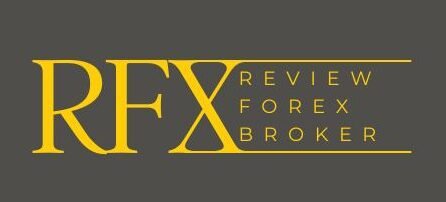In the world of forex trading, the spread—the difference between the buying and selling price—plays a crucial role in determining the overall cost of your trades. A lower spread can significantly enhance your profitability, especially for active traders who execute multiple transactions. In this blog, we’ll explore some of the best low-spread forex brokers that can help you maximize your trading potential while minimizing costs.
1. Understanding Spreads in Forex Trading
What Is a Spread?
The spread is a key factor that traders need to consider when choosing a forex broker. It represents the cost of entering and exiting a trade. Brokers typically offer two types of spreads: fixed and variable.
- Fixed Spread: The spread remains constant regardless of market conditions.
- Variable Spread: The spread fluctuates based on market volatility and liquidity.
Why Low Spreads Matter
Low spreads are essential for traders, particularly those who use high-frequency trading strategies or scalping. Even a small difference in spread can impact profitability, making it vital to choose a broker that offers competitive rates.
2. Criteria for Choosing a Low-Spread Forex Broker
When selecting a low-spread forex broker, consider the following criteria:
- Regulation and Trustworthiness: Ensure the broker is regulated by a reputable authority, which adds credibility and security.
- Trading Platform: Evaluate the trading platform’s features, usability, and reliability.
- Account Types: Look for brokers that offer various account types tailored to different trading styles and needs.
- Customer Support: Reliable customer service can help resolve any issues quickly.
3. Best Low-Spread Forex Brokers
Here are some of the top low-spread forex brokers to consider for cost-effective trading:
1. IC Markets
- Spreads: As low as 0.0 pips on major currency pairs.
- Regulation: Regulated by the Australian Securities and Investments Commission (ASIC) and the Seychelles Financial Services Authority (FSA).
- Platforms: Offers MetaTrader 4, MetaTrader 5, and cTrader.
- Features: Known for its fast execution speeds and advanced trading tools, IC Markets is ideal for scalpers and high-frequency traders.
2. Pepperstone
- Spreads: Starts from 0.0 pips on the Razor account.
- Regulation: Regulated by ASIC and the Financial Conduct Authority (FCA) in the UK.
- Platforms: MetaTrader 4, MetaTrader 5, and cTrader.
- Features: Pepperstone is renowned for its low trading costs and excellent customer service, making it a popular choice among traders.
3. FxPro
- Spreads: Average spreads starting at 1.6 pips, with ECN accounts offering lower spreads.
- Regulation: Regulated by the FCA, CySEC, and FSCA.
- Platforms: MetaTrader 4, MetaTrader 5, cTrader, and FxPro’s proprietary platform.
- Features: FxPro provides a wide range of trading instruments and competitive spreads, catering to different trading strategies.
4. Admiral Markets
- Spreads: With the Trade.MT5 account, spreads can be as low as 0.0 pips.
- Regulation: Regulated by the FCA, ASIC, and CySEC.
- Platforms: MetaTrader 4 and MetaTrader 5.
- Features: Admiral Markets offers a robust educational resource center, making it an excellent choice for both novice and experienced traders.
5. OANDA
- Spreads: Average spreads starting at 1.0 pips on major pairs.
- Regulation: Regulated in multiple jurisdictions, including the FCA and CFTC.
- Platforms: OANDA’s proprietary platform and MetaTrader 4.
- Features: OANDA is known for its transparency and comprehensive research tools, appealing to serious traders who value data-driven decisions.
4. Tips for Maximizing Cost-Effectiveness in Forex Trading
1. Choose the Right Account Type
Select an account type that aligns with your trading style. ECN accounts usually offer lower spreads but may come with a commission, while standard accounts may have higher spreads but no commissions.
2. Monitor Market Conditions
Be aware of market conditions that can affect spreads. During major news events or economic releases, spreads may widen. Timing your trades can help minimize costs.
3. Use Limit Orders
Using limit orders can help you enter trades at your desired price, potentially avoiding unfavorable spreads during volatile market conditions.
4. Leverage Technology
Utilize trading tools and platforms that provide real-time data and analytics. This can help you make informed trading decisions and optimize your trading strategy.
Conclusion
Choosing a low-spread forex broker is a vital step toward cost-effective trading. By considering factors such as regulation, platform features, and customer support, you can find a broker that meets your trading needs. Brokers like IC Markets, Pepperstone, FxPro, Admiral Markets, and OANDA stand out for their competitive spreads and robust offerings.
As you embark on your forex trading journey, remember to continuously evaluate your trading strategies and stay informed about market conditions. With the right approach and a trusted broker, you can enhance your trading experience and maximize your profitability.

